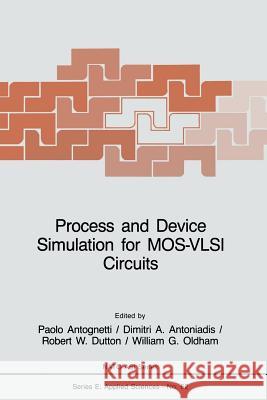Process and Device Simulation for Mos-VLSI Circuits » książka
Process and Device Simulation for Mos-VLSI Circuits
ISBN-13: 9789400968448 / Angielski / Miękka / 2011 / 636 str.
P. Antognetti University of Genova, Italy Director of the NATO ASI The key importance of VLSI circuits is shown by the national efforts in this field taking place in several countries at differ- ent levels (government agencies, private industries, defense de- partments). As a result of the evolution of IC technology over the past two decades, component complexi ty has increased from one single to over 400,000 transistor functions per chip. Low cost of such single chip systems is only possible by reducing design cost per function and avoiding cost penalties for design errors. Therefore, computer simulation tools, at all levels of the design process, have become an absolute necessity and a cornerstone in the VLSI era, particularly as experimental investigations are very time-consuming, often too expensive and sometimes not at all feasible. As minimum device dimensions shrink, the need to understand the fabrication process in a quanti tati ve way becomes critical. Fine patterns, thin oxide layers, polycristalline silicon interco~ nections, shallow junctions and threshold implants, each become more sensitive to process variations. Each of these technologies changes toward finer structures requires increased understanding of the process physics. In addition, the tighter requirements for process control make it imperative that sensitivities be unde~ stood and that optimation be used to minimize the effect of sta- tistical fluctuations.











